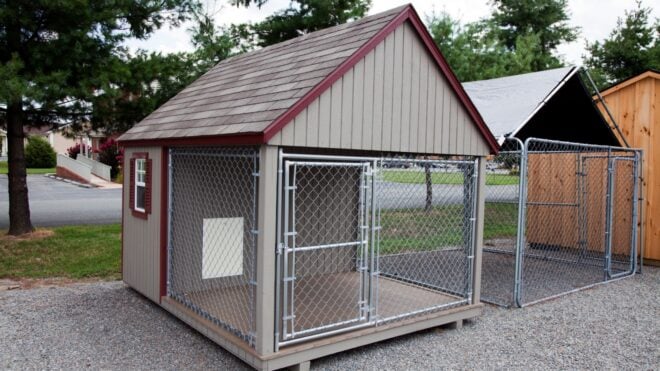Kristin Davis is a woman who contains multitudes. The actress, Goodwill ambassador for the UN Refugee Agency, volunteer, producer, and enthusiastic protector of animal rights also has a title that she prizes above all else: mom. Kristin has two children, and just like moms everywhere, she's been through a lot with her kids.
One of Kristin's children has suffered from moderate-to-severe atopic dermatitis, or eczema, off and on for years. Any parent who has been in and out of the pediatrician's office with more questions than answers can already immediately relate to parts of her journey: the confusion, hope, disappointment, fear, worry, and happiness that you feel when you're trying to help solve a health-related conundrum for your child. As a mom of a kid with three chronic conditions, I fully know how deeply unsettling it can be to realize that such an important part of your child's life is totally out of your control.
Eventually, she was able to connect with Dr. Lawrence Eichenfield, the Chief of Pediatric and Adolescent Dermatology at Rady Children’s Hospital in San Diego and Kristin learned about a truly revolutionary eczema treatment that is unlike anything else available to parents right now — and that actually works.
After years of trying various treatments, homeopathic remedies, and pretty much every suggestion from every mom she has ever met at the playground, Kristin and her child were finally introduced to an eczema treatment that works. If you have stayed up hours into the night trying to solve what feels like an impossible riddle for your child's health, then you probably understand exactly how important the words "that works" actually can be.
The medicine, Dupixent, has been recently approved for children who are 6 years of age and older and who suffer from moderate-to-severe eczema that is not well controlled with prescription therapies used on the skin (topical), or who cannot use topical therapies. Unlike a lot of other eczema treatments, Dupixent isn't topical. Children and adults receive the medication as an injection, and it blocks two proteins called interleukins [or interleukin-4 and interleukin-13]. This is important because interleukins are part of the immune system. Sometimes, they can be triggered to attack the body, which can result in chronic inflammatory conditions like eczema.
For moms like Kristin who have children who suffer from eczema, the medication has opened up a whole new world. For starters, everyone can finally catch a break and calm down a little. The sense of relief that occurs after you know your child is going to be OK is unmatched, and that's exactly the feeling that Kristin is able to enjoy now.
One of the more challenging parts of raising a child who has a medical struggle is that parents often feel a total loss of control and, sometimes, even hope. A mom can definitely feel really isolated and alone when she's facing down numerous unknowns that all pertain to the happiness and well-being of her child. Kristin definitely knows how that feels.
A lot of parents also turn to one amazing resource that they can trust during a time of need: other parents. When her child's symptoms first began to appear, Kristin wasn't sure what could be going on. Like most moms, she often ended up having conversations about the possibilities with other parents, and she received many, many responses.
"My child was very young when this all started, and I had no idea — eczema didn't even enter my mind as a thing that could be happening to a baby! I just had no knowledge. Different moms would say different things, and a lot of the time, when we're talking about the whole spectrum of reactions, it's quite big, the reactions babies might have."
It probably doesn't surprise you to learn that the suggestions were sometimes baffling. "People would say, 'Oh, just use this cream' or 'Oh, scrub it off!'" Kristin shared. "I had two or three people tell me to scrub it off, which was so strange. They were like, 'Well, that's what I did, and it went away.'"
These conversations can be tough because parents intuitively want to relate to and trust other parents, but when your child has a condition like moderate-to-severe eczema, most other parents won't be able to relate to you after all. As Kristin points out, "It was probably something different that their baby had."
Dr. Eichenfield echoed the idea that moderate-to-severe eczema isn't exactly common. While many parents have probably stayed up at night, worried about a rash that doesn't seem to go away, it doesn't always mean it's eczema. He says that in the United States, roughly 10% to 15% of children suffer from eczema. Of that percentage, the vast majority of cases begin when children are quite young.
Kristin and her child began fighting their battle against eczema years ago, well before a treatment like Dupixent existed. Like a lot of moms of kids who have chronic conditions, she's had to learn a lot on the fly.
"For ours, it just didn't go away. It got worse, and [it appeared in] more different places and shades. It just escalated in a way. I think that was the difference for us when it started. It wasn't something that any amount of moisturizer could make disappear. I'd just try something new and be like, 'Oh, this seems to be great!' and it would be in a different place. It was a challenging, challenging situation."
Happily, Kristin says that these days, her child is doing great in terms of eczema.
"It's managed now, but it is a low-grade [presence]. I'm always, always on the lookout, and that's probably why I was so excited about Dupixent, because there wasn't a treatment when we were looking for it, that wasn't an a topical cream or steroid. There wasn't a great, ongoing treatment that actually gets to the root of the problem."
She also said that she understands why some parents may be hesitant to try the drug on their children's eczema, but that "from a holistic point of view, eczema is an inflammation process. You're dealing with inflammation systemically for your child over your time. And that used to really keep me up at night because we know inflammation is bad, right? You have to really drill down on what's important. Is it important not to use any medicine and yet to continue to be in a state of inflammation for your child for years and years? I don't know about that, especially now that we have something that works."
Anyone who is familiar with eczema (especially parents of children who face the struggle), knows that kids can often build up a resistance to topical solutions that work. A new cream or prescription might seem like it's working great, and then all of a sudden it just completely fails.
Dr. Eichenfield explained that what makes Dupixent different is that it's a systemic therapy: "It's something that is given systemically, and treats inflammation in the bloodstream as well as in the skin."
That's pretty novel — and definitely goes above and beyond what traditional topical creams can do.
Kristin is definitely a realist when it comes to protecting her children, and she knows that her child's eczema struggle may not be over. This new treatment is definitely providing a reprieve from a life that is filled with many additional concerns should they need a treatment of this kind.
She shared that one of the biggest challenges that has come with navigating this chronic condition it that it's hard for other parents to really understand what it's like. Plus, she definitely has to resist the urge to spiral down internet rabbit holes.
"Once I started looking and I saw all the moms talking about the bleach baths and the mummy wraps … it's a lot! I think that other people who don't have this problem are just like, 'What do you mean? Just put this moisturizer on!' I find it very interesting."
As a mom of a child who has faced quite a few medical challenges in his life, I know how scary it can feel, and how parents feel they are to blame for their child's challenges. I asked Kristin what she would say to other moms who are facing down something that can feel insurmountable and worried that they've failed.
"You do feel that way, you definitely feel that way. I felt that way for a while, for years. You want to fix everything for your kid. We know intellectually that we can't, but especially when they're little … you want them to be able to do everything, and have fun with everything, and not be scratching and pulling their skin off and hair out. I would say (a) give yourself a break, and (b) trust your instincts and really speak up to your health care providers. Whether you're going to a specialist or a pediatrician.
"I felt for a long time, 'Oh, it's just a rash,' because that's what everyone would tell me at the playground. But the things didn't work, so eventually, I did the right thing and went to a pediatrician, and everything followed from then."




